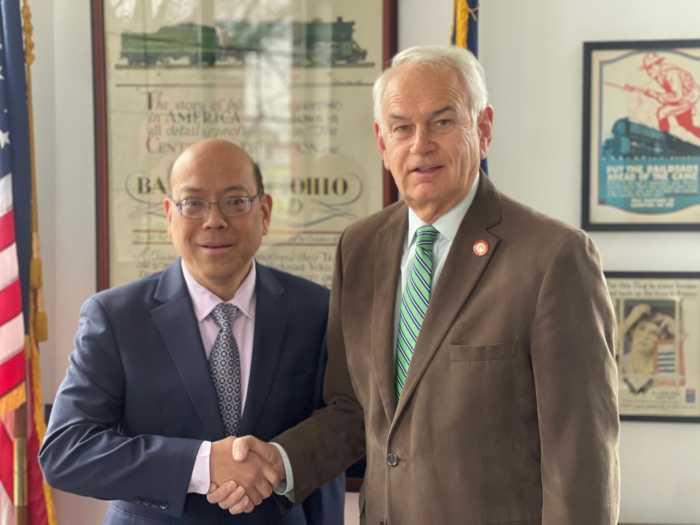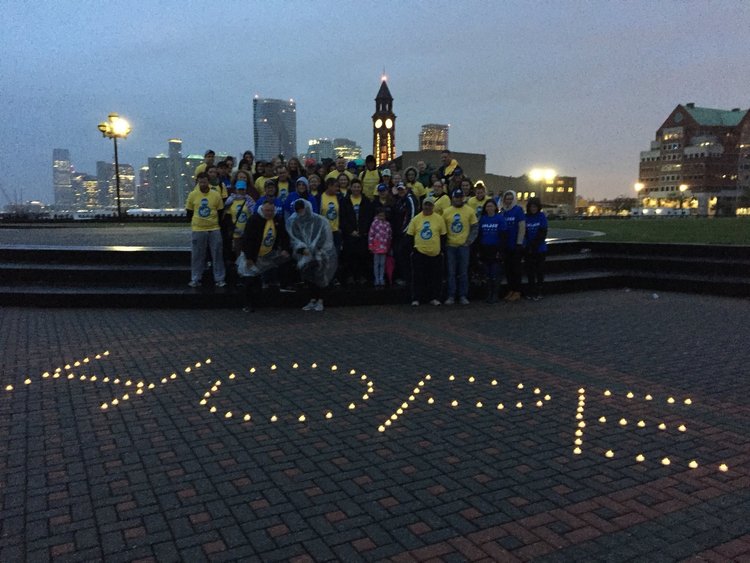By Matthew Monks
“Knowing what I know now I would not have voted for it,” Maloney said during a United Community Civic Association meeting. “In short, weapons of mass destruction become weapons of mass deception.”
When she cast her vote in the House in October 2002 giving the president authority to use military force to make Iraq give up its weapons, she said she believed the administration's assertions that Iraqi leader Saddam Hussein posed an imminent threat.
Still raw from the loss of 500 of her constituents in the Sept. 11, 2001 attacks on the World Trade Center, she attended intelligence briefings on Iraq's stockpile of chemical and biological weapons. Officials detailed scenarios in which thousands of New Yorkers were killed after terrorists dropped chemical agents on the city. It turned her stomach, she said.
“All I had was the information before me,” Maloney said. “I voted for what I thought would protect the people I represent. You make a judgment of what you believe is right.”
Maloney stopped short of apologizing for her vote and said the United States now has a responsibility to rebuild the country.
“If we just cut our losses and left, what a mess we would have,” she said. “It would be a breeding ground for al Qaeda-types.”
She said a civil war between the country's Sunni Muslims and Shiite Muslims would surely ensue.
That's why she agrees with U.S. Sen. John Kerry's (D-Mass.), proposed exit strategy involving the international community in Iraq's reconstruction.
A supporter of the Massachusetts senator's Democratic presidential bid, she said Kerry has the character and strength to take the reins of the nation during troubled times. She spent time with him April 14 during his visit to City College of New York in Manhattan and said she liked what she saw.
“He's got substance. He's a war hero. He can answer a question in a coherent way,” Maloney said. “What I like about him is that he's not afraid of anyone.”
Also during the meeting, Maloney told seniors who turned out for the meeting to beware of Republican-forced changes to Medicare taking effect this summer.
Pushed through Congress at the end of last year and going into full effect in 2006, the legislation leaves broad gaps in Medicare coverage – especially in prescription drug benefits, she said.
“It's an absolute disaster,” Maloney said of the plan. “The more you study it, the more it seems to take away what you already have.”
The first stage of the law begins in June, when low-income seniors can choose among 106 different prescription drug discount cards. She warned them to diligently research each one before making a selection because the cards carry varying benefits – some of which may change from week to week – are issued for an entire year.
When the second stage begins in 2006, she said many New York Medicare recipients will face skyrocketing fees. Only seniors who earn under $13,000 a year and own less than $6,000 worth of assets will qualify for comprehensive coverage.
Others may have to pay for all prescription drug costs between $2,250 and $5,100 out of their own pockets. She also said the bill prevents the federal government from negotiating lower prices with drug companies, forcing Medicare to compete with private health providers
“This is tough medicine,” Maloney said. “I think it's criminal.”
Reach reporter Matthew Monks by e-mail at news@timesledger.com or call 718-229-0300, Ext. 156.

































